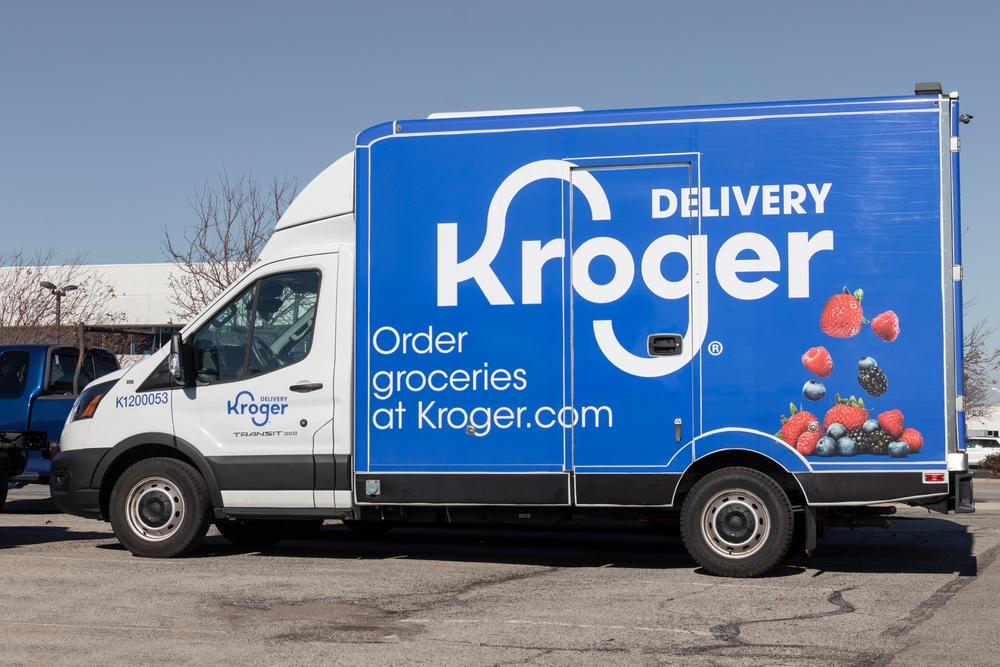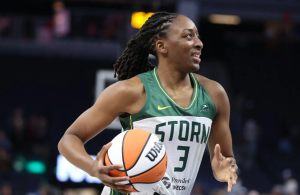Kroger, Albertsons' $24.6B Merger Blocked by Oregon and Washington Courts.
Judges in Oregon and Washington have on Tuesday dismissed the proposed $24.6 billion merger between grocery giants Kroger and Albertsons. U.S. District Judge Adrienne Nelson in Oregon issued a temporary injunction against the merger, while King County Superior Court Judge Marshall Ferguson deemed the proposal “unlawful.”
The ruling in Oregon was announced shortly before the verdict in the Washington case was delivered. The lawsuit in Oregon was initiated in late February by the Federal Trade Commission along with attorneys general from eight states and the District of Columbia. “Both defendants indicated a future where they would struggle to compete against the ever-expanding Walmart, Amazon, or Costco.
They contend that without the scale provided by the merger, traditional supermarkets will find it increasingly challenging to survive in the long run,” Nelson stated in her ruling. “However, the primary objectives of antitrust law are not fulfilled by allowing an otherwise unlawful merger merely to enable firms to compete with a dominant industry player.” In Washington, Ferguson noted that Kroger and Albertsons’ strategy to sell 579 stores to C&S Wholesale Grocers did not sufficiently enhance competition, “not due to the number of stores being divested, but because C&S is unlikely to manage them in a manner that reinstates competition.”
Nelson remarked that the preliminary injunction “does not compel them” to withdraw from the case, although industry analysts have suggested that such an injunction may effectively terminate the merger attempt. “An injunction merely suspends the merger. Any adverse effects experienced by the defendants due to the injunction do not outweigh the significant public interest in enforcing antitrust laws, particularly given the challenges associated with reversing a premature merger,” Nelson explained. It remains unclear when a ruling will be issued regarding the third antitrust case in Colorado.
Latest: Who is Luigi Mangione, Suspect in UnitedHealthcare CEO Murder?
Both Kroger and Albertsons issued statements in response to the recent rulings. Neither company clarified whether they would proceed with the merger, indicating only that they are assessing their options. Kroger's statement highlighted that the proposed merger with Albertsons would lead to over $1 billion in reduced grocery prices, an additional $1 billion in increased wages for grocery workers, and $1.3 billion dedicated to enhancing Albertsons stores.
Kroger expressed disappointment regarding the opinions from the U.S. District Court for the District of Oregon and the Washington State Court, asserting that these rulings disregarded substantial evidence presented during the trial. Kroger maintained that the merger would further its long-standing commitment to lowering prices, honoring collective bargaining agreements, and benefiting customers, employees, and the competitive grocery market. Albertsons also expressed disappointment with the FTC's decision.

The company stated, “We believe we clearly outlined during the proceedings how the proposed merger would expand competition, lower prices, increase associate wages, protect union jobs, and enhance customers’ shopping experience. We are carefully reviewing the court’s opinion and are evaluating our options in accordance with the merger agreement.” Throughout the proceedings, both Kroger and Albertsons contended that their primary competitors are not each other, but rather larger entities such as Walmart, Amazon, and Costco.
However, the decision noted that in overlapping markets, Kroger and Albertsons view each other as their main competitors. The ruling indicated that in areas where the two companies overlap, Kroger frequently monitors the pricing of essential grocery items, primarily checking prices against traditional supermarkets and supercenters, which account for approximately seventy-nine percent of its price checks.
Nelson stated that retailers outside the supermarket sector, including Walmart, Whole Foods, Costco, and Amazon, view a range of retail categories—such as supermarkets, limited assortment stores, dollar stores, e-commerce retailers, and natural and gourmet stores—as their competitors. He further elaborated that supermarkets are unique compared to other grocery retailers. Supermarkets provide a broader array of fresh and non-perishable products, offering a comprehensive shopping experience that caters to consumers' desires to fulfill all their grocery requirements in a single location.
Additionally, they emphasize customer service through specialized departments like deli, bakery, and meat. Nelson asserted that the recognition among industry professionals of supermarkets as a distinct category that competes with one another, along with their monitoring of each other's pricing and sensitivity to market changes, reinforces the idea that supermarkets constitute a submarket within the grocery retail sector.
Latest: Bankruptcy Judge Blocks Sale of Alex Jones' Infowars to The Onion
In a similar vein, Ferguson remarked in his ruling that the grocers' perspective on competition is excessively expansive. His decision dismissed assertions that Kroger and Albertsons directly compete with other formats such as Walmart, Target, Costco, and Amazon.
Ferguson highlighted evidence indicating that Albertsons, in an internal analysis, concluded that if customers chose to shop elsewhere, they would most likely turn to another traditional grocery chain. “In examining consumer diversion, the state's competition economist expert witness, Dr. Nitin Dua, referenced an internal study conducted by Albertsons, which revealed that the overwhelming majority of sales lost from closed Albertsons supermarkets in Washington state would shift to other supermarkets rather than to different store formats,” Ferguson noted.
“The study indicated that if an Albertsons store were to close, 90% of its sales would transition to other supermarkets, while only 10% would be redirected to alternative store formats. Even with a Costco located within three to five miles, the diversion from a closed Albertsons store would remain below 5%.”
Latest: Donald Trump Appoints Kimberly Guilfoyle as U.S. Ambassador to Greece
The recent rulings by Oregon and Washington courts have effectively blocked the $24.6 billion merger between grocery giants Kroger and Albertsons. U.S. District Judge Adrienne Nelson and King County Superior Court Judge Marshall Ferguson both cited antitrust concerns, ruling that the merger would not foster competition but potentially harm consumers. While Kroger and Albertsons expressed disappointment, they have yet to announce their next steps. The decision underscores the importance of antitrust laws in maintaining a competitive marketplace, particularly within the grocery industry, where large players like Walmart and Amazon continue to expand, increasing pressure on traditional supermarkets.





















